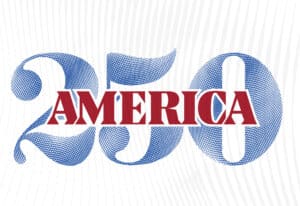America250 & the Civil War
 Emerging Civil War welcomes David Hamon
Emerging Civil War welcomes David Hamon
The Civil War Round Table Congress is encouraging local Civil War Round Tables to embrace the America250 initiative to promote and celebrate our history by partnering with local organizations within our communities.
While the initial commemorative events have focused upon America’s revolutionary era, there is a line – sometimes straight, often challenging – in our history from independence to the Civil War.
The promise of “rights” didn’t include the enslaved. It took a long and bloody Civil War, with many sacrifices on the part of those fighting to preserve the Union, while the citizens of Northern communities supported the effort to reunite our nation. Without a Union victory, there would be no 250th Anniversary of the United States – no matter how noble and far-sighted our founding fathers were in the 18th century – and therefore no anniversary to celebrate.
The CWRT Congress has urged local Round Tables to seize opportunities to encourage Americans to embrace Civil War history, framing it in ways to educate and inspire, but most importantly, to contribute to the civic life of their communities.
 Tempted as we may be to look toward Washington, D.C. for the grand celebrations of America250, such as fireworks, nationwide extravaganzas, television pageantry, and reenacting to round out our commemorative events, it follows that our best celebrations are local.
Tempted as we may be to look toward Washington, D.C. for the grand celebrations of America250, such as fireworks, nationwide extravaganzas, television pageantry, and reenacting to round out our commemorative events, it follows that our best celebrations are local.
The website of the Semiquincentennial Commission makes the following pronouncement:
“On July 4, 2026, our nation will commemorate and celebrate the 250th anniversary of the signing of the Declaration of Independence. The journey toward this historic milestone is an opportunity to pause and reflect on our nation’s past, honor the contributions of all Americans, and look ahead toward the future we want to create for the next generation and beyond.”
On July 3, 2025, the America250 commemoration commenced at the Iowa State Fair with the following patriotic remarks: Americans have triumphed through hardworking efforts of our citizens to win our independence, and to secure our liberty and build this country with courage, grit, and skill.
These are two very different versions of the commemorative initiative.
And then there’s this. The America250 Handbook of the American Association for State and Local History (AASLH) begins with what may be termed as the unfulfilled promise of our revolutionary beginnings as a nation. We Americans have been continually challenged to live up to our highest ideals, as expressed in our founding documents. Before, during, and after the Revolution, we fought for our rights to life, liberty, and the pursuit of happiness and worked tirelessly to secure the blessings of liberty for ourselves and our posterity. However, our history is not a consistent march of progress, but a complex story of achievements, advancements, and setbacks. These “histories” reveal the ways our Revolution began before 1776 and reverberates through to the present.
Of course, this handbook was developed as a guide for state and local historical societies to support preparations for celebrations with history in mind. But sadly, there is no reference to Civil War history.
The most meaningful and impactful commemorations will take place on “main street.” History is best remembered, observed, learned, and shared inside our local communities. One doesn’t have to reside near a Civil War site to assist historical societies or museums in creating local exhibitions.
Moreover, giving voice to notable veterans in local ceremonies, working with living historians to stage reenactments, or youth education events are popular celebrations. And by collaborating with veterans and/or military service organizations, many anniversary commemorative activities are feasible. One is only limited by one’s imagination.
Finally, an excellent foundational starting point for inspiration may be to reread and ponder the message in Lincoln’s Second Inaugural Address. Lincoln’s wish that we withhold malice and strive to complete our goal of healing the nation and all who have been affected by the terrible conflict so as “to achieve and cherish a just and lasting peace among ourselves, and with all nations.”
David Hamon is Membership Chair and serves on the Program Committee on the Board of CWRT of Fredericksburg and is also on the Board of the CWRT Congress.
Each state and territory has a commission also. I’d encourage RTs to also reach out to the one in their respective area.
“Without a Union victory there would have been no 250th anniversary of the United States …… and therefore no anniversary to celebrate” is a rediculous statement. If the Confederacy had ‘won’ the Civil War the United States of America would still have existed and continued to grow with the western expansion. The country would have been different (although I suspect the Confederacy would have eventually collapsed as cotton production declined and be reabsorbed by now) but still based on the founders concepts. Without or without the southern states there would of been substantial reasons to celebrate 250 years of the country.
Of course there would be a 250th Anniversary of the United States without a victory for the Union. There would still have been a United States, the 20+ states that remained in the Union – including six slave-holding states that were never made to give up their slaves during the war on slavery – and most if not all of the 15+ states that joined the Union following the war. All would be in the Union and celebrating 250. They just would not be including the 11 states that seceded, and possibly more, unless those states eventually chose to rejoin the Union.